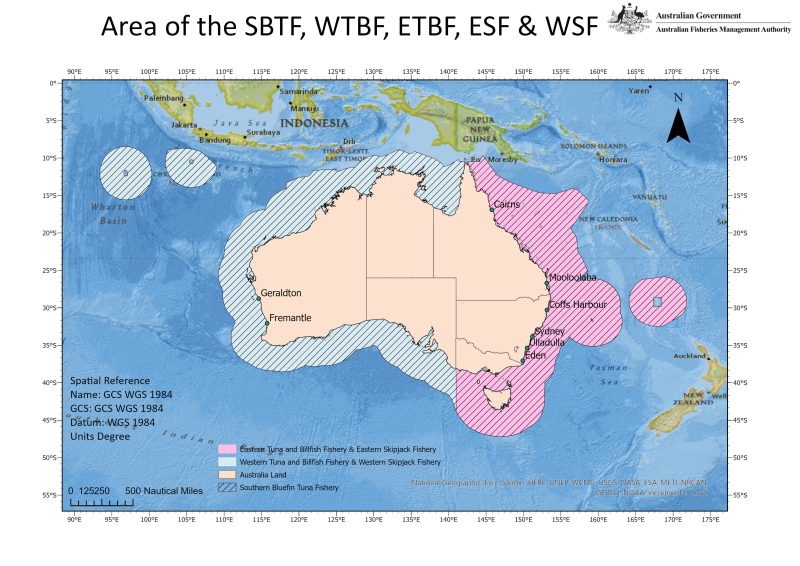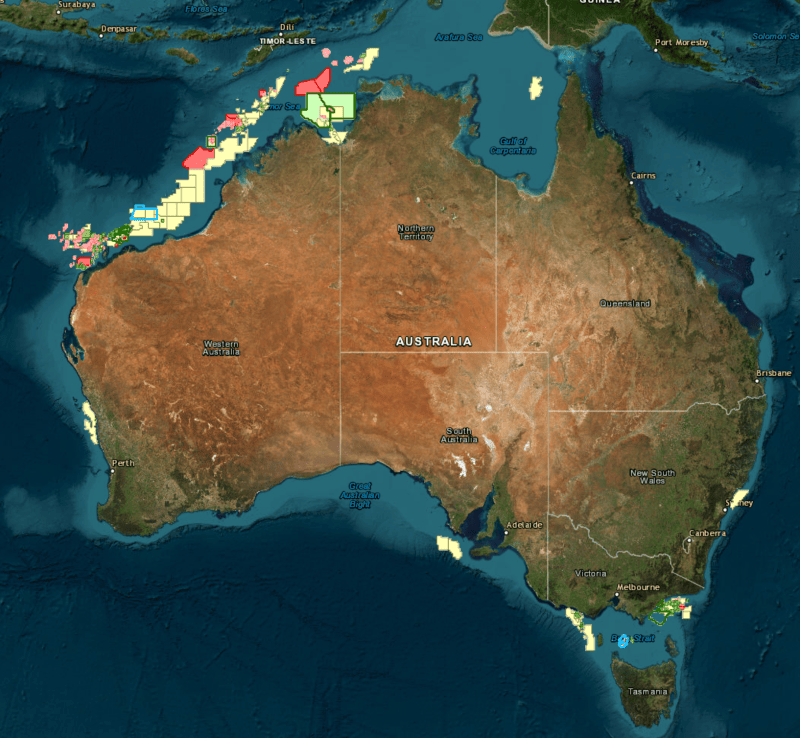Tuna Australia releases position statement on engaging with companies pursuing offshore development
Tuna Australia, the industry body for the commercial tuna longline fishing sector, has issued its position statement on engaging with companies interested in conducting marine activities within Australian waters.
“The ocean is our shared resource, and it is essential that we work together to protect and preserve it,” said Tuna Australia CEO David Ellis.
“Tuna Australia's position statement highlights our proactive approach to engaging with companies interested in conducting marine activities.
“By fostering collaboration and providing guidance, we can minimise environmental risks and impacts and contribute to the responsible and sustainable development of our precious marine ecosystems," he said.
Partnering for sustainability
Tuna Australia members have a strong presence in the Eastern and Western Tuna and Billfish Fisheries (ETBF and WTBF, respectively).
Some members hold concessions in the Southern Bluefin Tuna Fishery and permits in the Australian Skipjack Fishery.
“Annually, our members reel in over 5000 tonnes of premium tuna, destined for both domestic and international markets,” said Ellis.
“Our target species are Yellowfin Tuna, Bigeye Tuna, Albacore Tuna, Broadbill Swordfish, and Striped Marlin, as well as Southern Bluefin Tuna.
“These remarkable species belong to highly migratory fish stocks, which are shared internationally.”
The combined fishing area of these fisheries covers the huge expanse of the Australian exclusive economic zone.
“Given our significant presence, Tuna Australia is recognised by the Australian Government as the leading authority in the longline fishing sector,” said Ellis.

Map of Tuna Australia members' fishing areas.
A changing marine landscape
The tuna longline industry is increasingly being affected by marine spatial squeeze—defined as competition and conflict for limited marine space.
It occurs when multiple stakeholders, such as fishing, shipping, tourism, energy development and conservation wish to operate in the same limited space.
We are seeing an escalation in environmental plans for a range of oil and gas activities, said Tuna Australia Program Manager Phil Ravanello.
“Marine wind farms are being proposed at an alarming rate. Companies are launching rockets and allowing space junk to land where we fish. Some members have been moved on without notice due to naval exercises, and aquaculture is expanding into commonwealth waters.
"We also need to consider recreational fishing fish aggregating devices, scientific monitoring equipment, and marine park closures when setting our gear.”

Australia’s oil production, reserves and resources as at 4 June 2023. Images sourced from Geoscience Australia.
Tuna Australia members have reported numerous concerns.
“There is the loss of fishing area, impact of seismic energy on developing larvae and changing fish migratory paths, proposed energy activities occurring at the same time as fishing and in the same area, and impacts on international shared fish stocks,” said Ravanello.
Tuna Australia is committed to fostering constructive engagement with proponents seeking offshore access for maritime development, said Ellis.
“We firmly believe that collaborative efforts are essential for achieving sustainable development while conserving our precious fish resources."
Tuna Australia invites all project proponents to reach out for guidance and consultation to support environmental plans.
“We ask companies to promptly contact us on their proposed activities to assess the impact on vessel navigation, fishing activities, or fish resource conservation.”
A new services agreement
For several years, Tuna Australia has responded to proposals impacting the longline industry.
However, there has been a recent surge in activity from various proponents seeking access to offshore areas for maritime development.
“To manage this influx, we now require project proponents to enter into a service agreement with us,” said Ellis.
This agreement allows Tuna Australia to review detailed information concisely, including estimated impact boundaries and proposed control measures.
It also enables Tuna Australia to better plan and manage its resources and prioritise work with companies that have engaged respectfully.
“By streamlining the consultation process, Tuna Australia can dedicate valuable resources to reviewing content, providing informed commentary, and consulting with our members for advice,” he said.
“The Tuna Australia board and members have endorsed this approach.
“It enables us to remain at the forefront of sustainable development, resource access, and industry practices,” said Ellis.